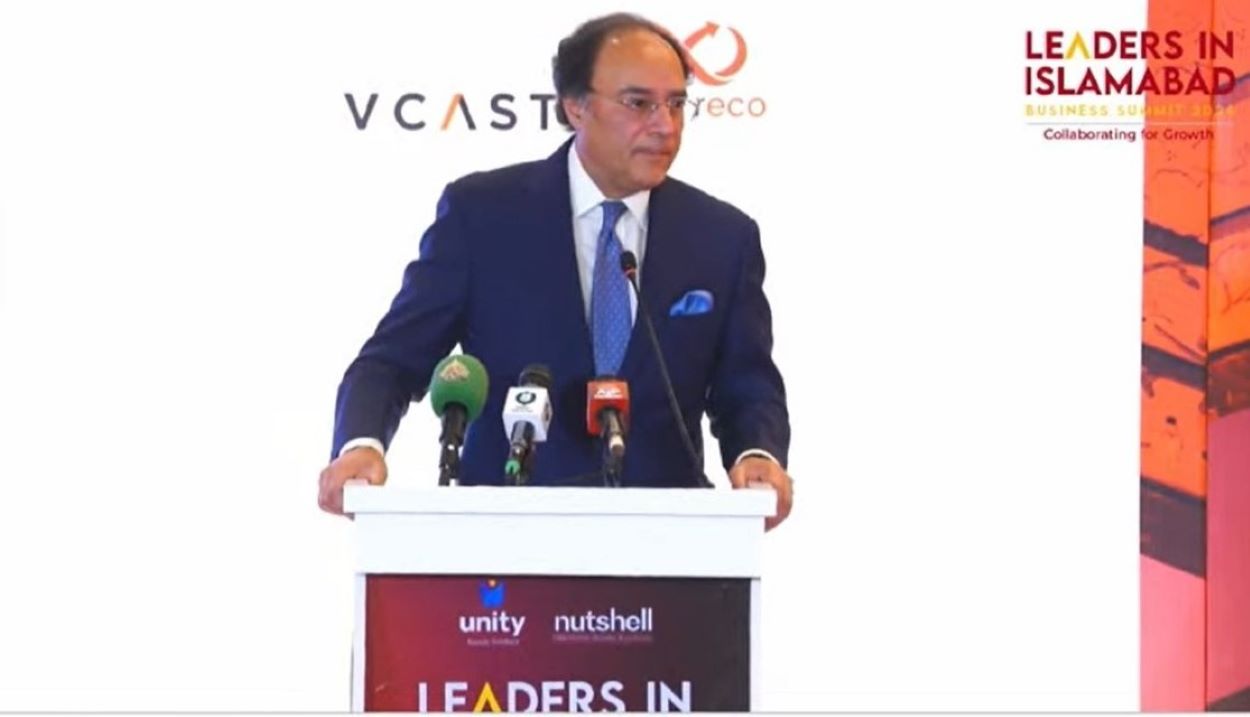On Tuesday, Finance Minister Muhammad Aurangzeb announced that Pakistan’s gross official foreign exchange reserves are expected to rise to $10 billion within two months. This forecast aligns with the anticipated approval of a $1.1 billion loan tranche by the International Monetary Fund (IMF) on Monday.
Aurangzeb revealed his plan to sidestep future IMF programs by securing a new, substantial 24th program. His strategy focuses on boosting exports, foreign direct investment (FDI), and sourcing debt from international markets, consistent with predecessors’ efforts over the last 16 years.
He criticized his predecessor’s emergency measures, suggesting that a mere 15 days of reserves left no room for alternative strategies. This critique appeared during his speech at the 7th Edition of the “Leaders in Islamabad Business Summit” (LIIBS), hosted by Nutshell Group and Unity Foods in partnership with various organizations.
The $3 billion Stand-By Arrangement (SBA) with the IMF was deemed crucial for Pakistan, with $1.9 billion already disbursed. The final tranche is expected soon, potentially boosting reserves significantly by June.
The State Bank of Pakistan’s extensive dollar purchases from local markets have maintained over $8 billion in reserves but weakened the rupee against the dollar.
An upcoming IMF mission in mid-May will discuss a new, longer program to stabilise the economy through structural reforms. Negotiations are expected to conclude by early July.
Investments are also being pursued, with potential Saudi investments discussed during a meeting with Crown Prince Mohammed Bin Salman. The focus is on attracting viable projects to secure this funding.
New foreign commercial loans are also on the horizon, as economic indicators show signs of improvement, with recent surpluses in the primary budget and current accounts.
The summit also saw calls for increased cooperation across Pakistan’s political, public, and business sectors to drive national progress.






